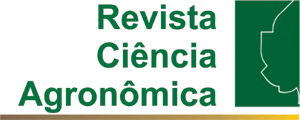ABSTRACT
Careful implementation of a filtration system is essential for maintaining the operation of an irrigation system. Failure to maintain a filtration system can have a negative eff ect on irrigation pressure and uniformity. To avoid this problem, it is important to clean the filters, which can be done either manually or automatically. Predicting the correct time to clean the filters helps maintain the pressure and efficiency of the system. The aim of this study was to model backwash pressure as a function of water quality and the filter inlet pressure load using artificial neural networks. The characteristics of the water were determined using sensors to measure the pH (hydrogen potential), turbidity, total dissolved solids (TDS), and temperature. A pressure transducer was used to quantify the drop in pressure and the need to clean the filters. To predict the need for cleaning the irrigation filters, a hydraulic structure was constructed that included a screen filtration system with a mesh size of 120, cleaned by backwashing. The need for cleaning estimated by the multilayer perceptron feedforward artificial neural networks with 2-4-1 architecture performed well in modelling the temporal evolution of the pressure load in the screen filtration system (120 mesh), whereas adjusting the pressure load based on the water quality characteristics (pH, turbidity, total dissolved solids and temperature) performed poorly.
Key words:
Computational Intelligence; Multilayer Perceptron; Pressure Load

 Thumbnail
Thumbnail
 Thumbnail
Thumbnail
 Thumbnail
Thumbnail
 Thumbnail
Thumbnail



